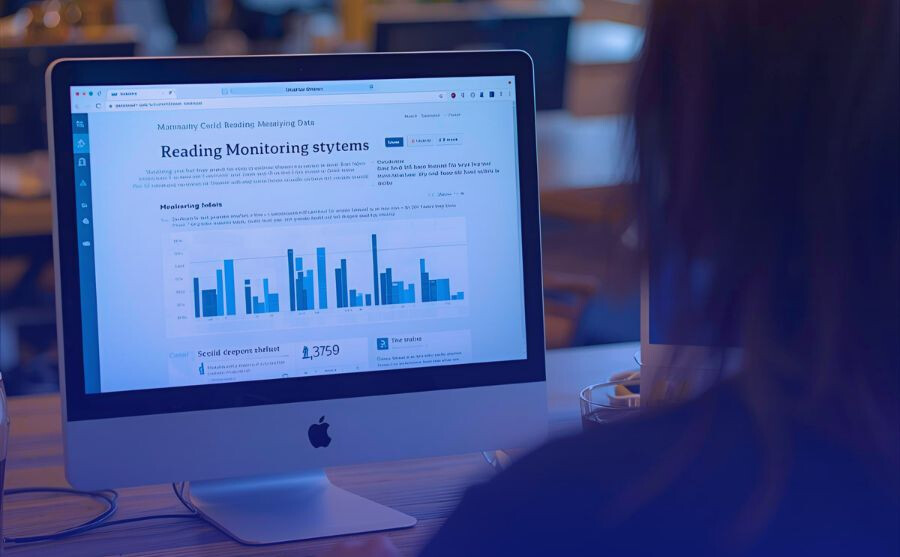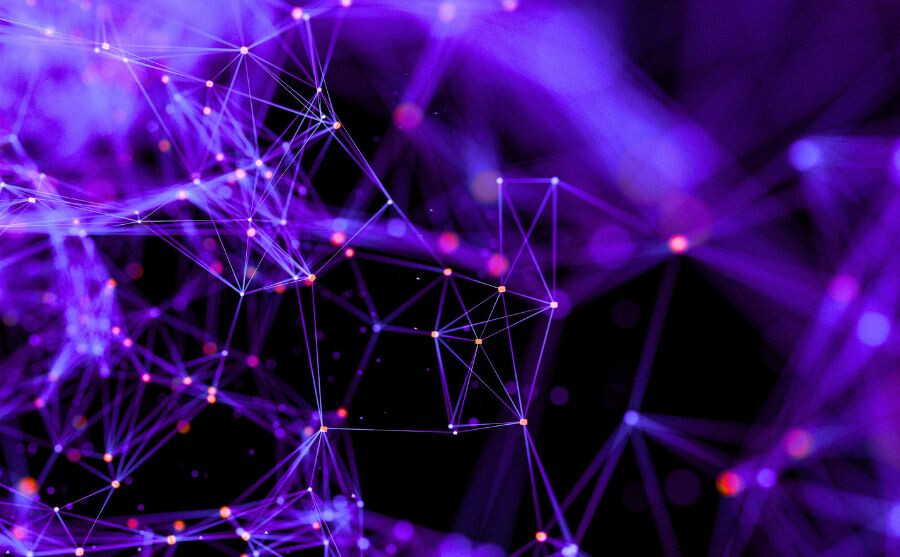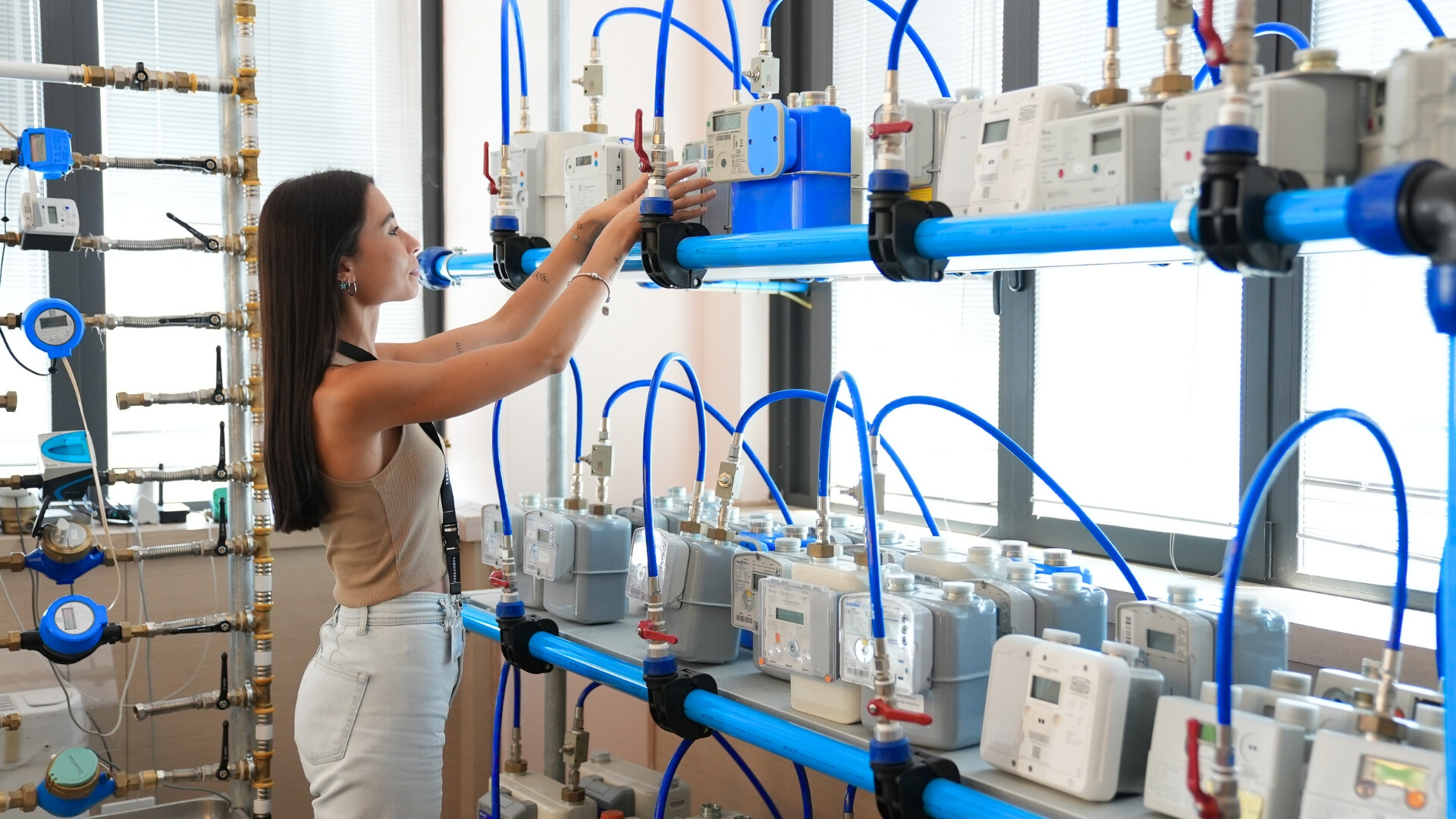

9/29/2025



Our R&D Manager Lucio Machetti spoke at Robot Day Perugia, organised by FIWARE Innova iHub, to discuss the present and future of automation in utility metering.
Tradition vs. Innovation in reading acquisition
Traditional methods of retrieving gas, electricity and water consumption data require an operator to physically go on-site to retrieve the data, or for the user to make a self-reading. These methods have over time been superseded by more advanced techniques based on smart metering, i.e. a system that allows a traditional meter equipped with a smart part to communicate with a power station to which it sends a series of data, not only readings but also other types of data such as event diagnostics or alarms.
This communication system can be of two types: the so-called point-to-point, which is when the device communicates directly with the data acquisition centre, and the so-called point-to-multipoint, which is when the meter communicates with a concentrator, which in turn will then talk to the data acquisition centre.
A third case is mainly in the water sector where an attempt is made to exploit the presence of operators on the territory engaged in activities such as installations or urban transport, enabling them to retrieve consumption readings: in this case, the operator is equipped with a device with an antenna to collect data from the meter and transmit it in a short range, and then transfer it to the data acquisition centre.
Overcoming traditional methods requires a high degree of complexity, mainly due to the number and variety of objects on the ground and the multiple communication protocols.
Managing network complexity
Process innovation requires a system that can handle the complexity of the fact that there can be different types of meters, i.e. gas, electricity or water, but we can also extend this to a generic sensor, e.g. smoke detectors, from a smart city perspective.
Each device is equipped with a communication channel such as the sim card, in the case of the GPRS channel, or the radio, in the case of radio frequency, and therefore the complexity is also given by the various communication channels and protocols.
For us at Terranova, dealing with complexity means managing more than 150 different meter models and 3,500 different firmware versions, thus ensuring that our customers can maintain their own hardware structure, even if it is very varied.
Managing complexity with Artificial Intelligence
In addition to the activity of retrieving meter readings, the operator also has to deal with maintenance issues. For example, gas and water meters are battery-powered and run down over time. The traditional approach is to periodically check the meter and as soon as it stops working, intervene in the field for replacement. Instead, an innovative approach uses the data that the meter sends to the centre to perform what is called predictive maintenance: basically, it predicts when a particular battery will be discharged in order to anticipate when it needs to be replaced, preventing the meter from interrupting communication and planning mass battery replacement to optimise operations.
If a meter stops communicating metering data, the operator has to estimate the end user's consumption, an activity that is not innovative in itself, but becomes so if a method is adopted that uses a machine learning approach to analyse all incoming data: it is in fact possible to train machine learning models that can precisely replicate how the user consumes electricity, gas or water in order to fill in the missing data with realistic data, i.e. not with mere divisions of a log by the number of days. In addition to obtaining much more realistic data, the operator will be able to use it to make decisions or to carry out anomaly detection activities in search of, for example, leakages or fraudulent consumption.
Lastly, we can think that by means of a simple photo taken by the operator in the field during the reading collection round, it is possible, thanks to Machine Learning and Deep Learning tools, to extract all the information relating to the meter, such as the measurement technology, model, serial number, and totaliser, all without making mistakes due to manual input and also reducing processing time.
These are the potentials we have today, relying on the smart metering system in our cities. Let us now try to imagine what more can be done with this system, which to date is underused.
Future scenarios
An element of revolution is the large-scale adoption of these devices, which in Italy is already present for the electricity and gas sectors, but only for about a year have we seen them being used for the water service as well. Similarly, we can also see this development abroad, where we can affirm our decades of experience, as Italy has been ahead of the rest of the world in the massive rollout of smart meters.
This sector is constantly innovating, just think of the various steps in the evolution of communication methods, from SMS to LoRaWan.
The increasing focus on sustainability issues will inevitably lead to the use of alternative renewable energy sources, such as biomethane and hydrogen,for which the same reading methods can be applied.
The participation of end-users is increasingly active and it is with this awareness that all consumption data must be processed in order to make citizens more aware of their habits so as to behave in a virtuous manner.
Did you know that...
In order to guarantee excellent standards of quality, security and innovative technology, enhancing it with ever more high-performance solutions, our Innovation Hub aims at monitoring and evaluating new technologies (AI, but not only), supporting the process of Open Innovation and developing a network of partners.
In this video we present our laboratory in Grosseto, a simulation of the gas, electricity and water distribution network: all devices are connected to our data acquisition centre and managed by our portals.


Want to know more?
We’d be happy to talk more in detail about your needs and explore how we can become your ideal partner, to assist you in your business venture of innovation, digitization and sustainability